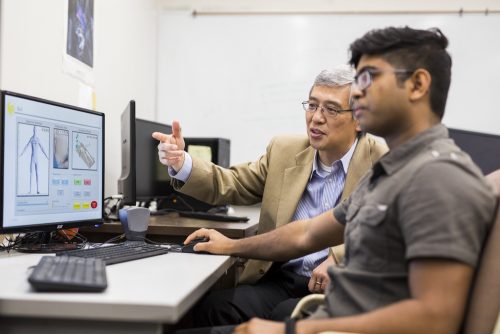What are High-Impact Educational Practices?
High-Impact Educational Practices (HIPs) are learning experiences that enhance a student’s academics. Participating in HIPs strengthens a student’s ability to develop intellectually and gain practical skills in communication, collaboration, and critical thinking (Kuh, 2008).
Characteristics of a High-Impact Practice
Students:
- Devote considerable time and effort to purposeful tasks that deepen their commitment to their activities and academic program
- Interact with faculty about substantive matters over an extended period of time
- Experience diversity and inclusion through contact with people who are different from themselves
- Receive frequent constructive feedback about their performance
- Connect what they are learning in different settings on- and off-campus
- Receive the tools and ethical grounding to act with confidence for the betterment of the human condition
UCF Defined HIPs*

- First Year Courses/Seminars
- Learning Communities
- Undergraduate Research
- Directed Independent Research
- Research Intensive Courses
- Experiential Learning
- Internships, Practicums, and Clinicals
- Service Learning
- Study Abroad & Global Learning
- Capstone Courses
- Integrative Experience Courses
*This is not an extensive list. Other HIPs at UCF do exist, but they are specific to individual degree programs.
HIP Dashboard
Student Learning and Academic Success has collaborated with Institutional Knowledge Management (IKM) to create the HIP Dashboard (on the page, scroll down to High Impact Practices). Up to date, dynamic and interactive data is available for undergraduate research and experiential learning (i.e., internships, clinicals, and practicums). Many administrators at UCF have access to the dashboard. To learn more, contact ikmanalytics@ucf.edu or request information.
HIP Resources
- UCF’s QEP Resources for Integrative Learning
- AACU HIPS Information
- AACU Value Rubrics
- Connect with our Student Success an Well-Being (SSWB) HIP offices directly: Academic Advancement Programs, EXCEL, Experiential Learning, UCF Abroad, Office of Undergraduate Research
